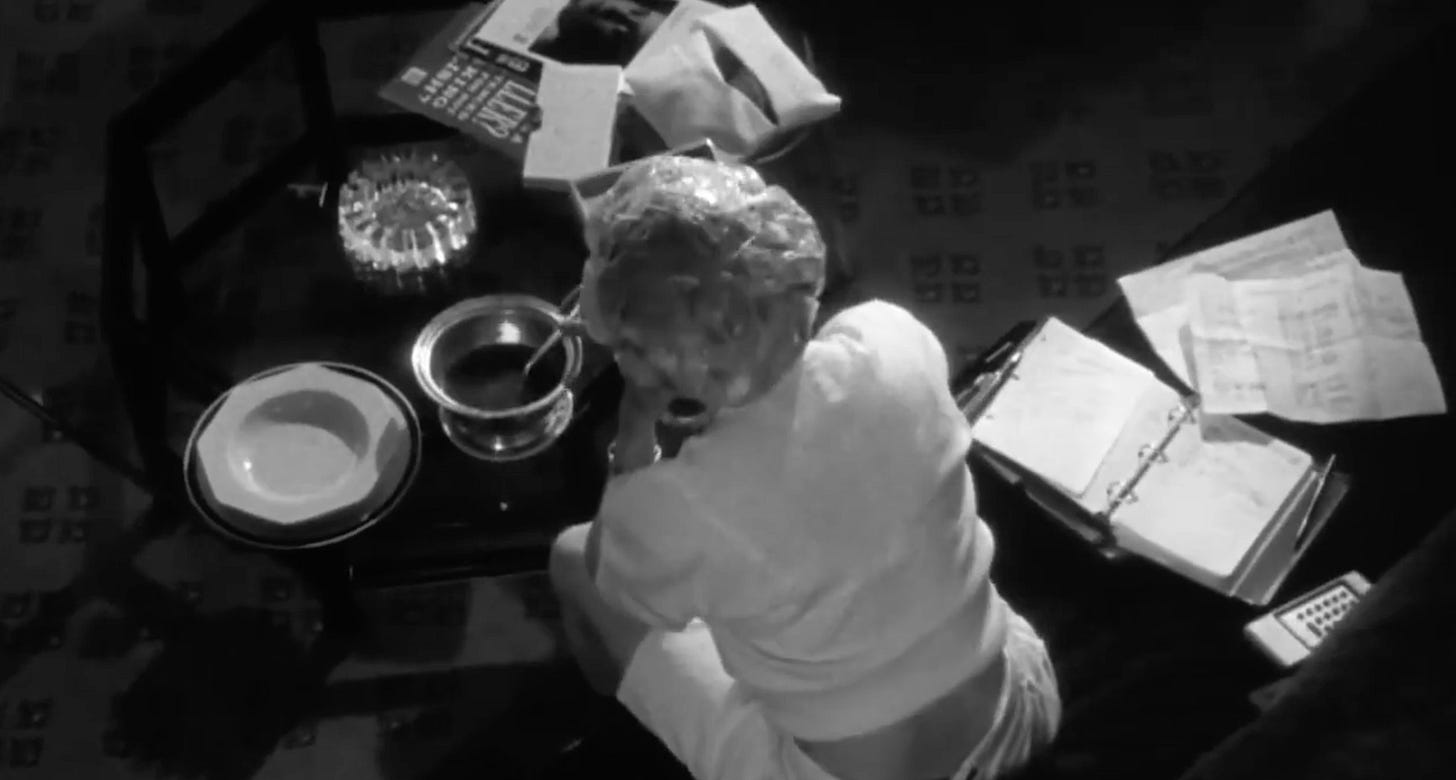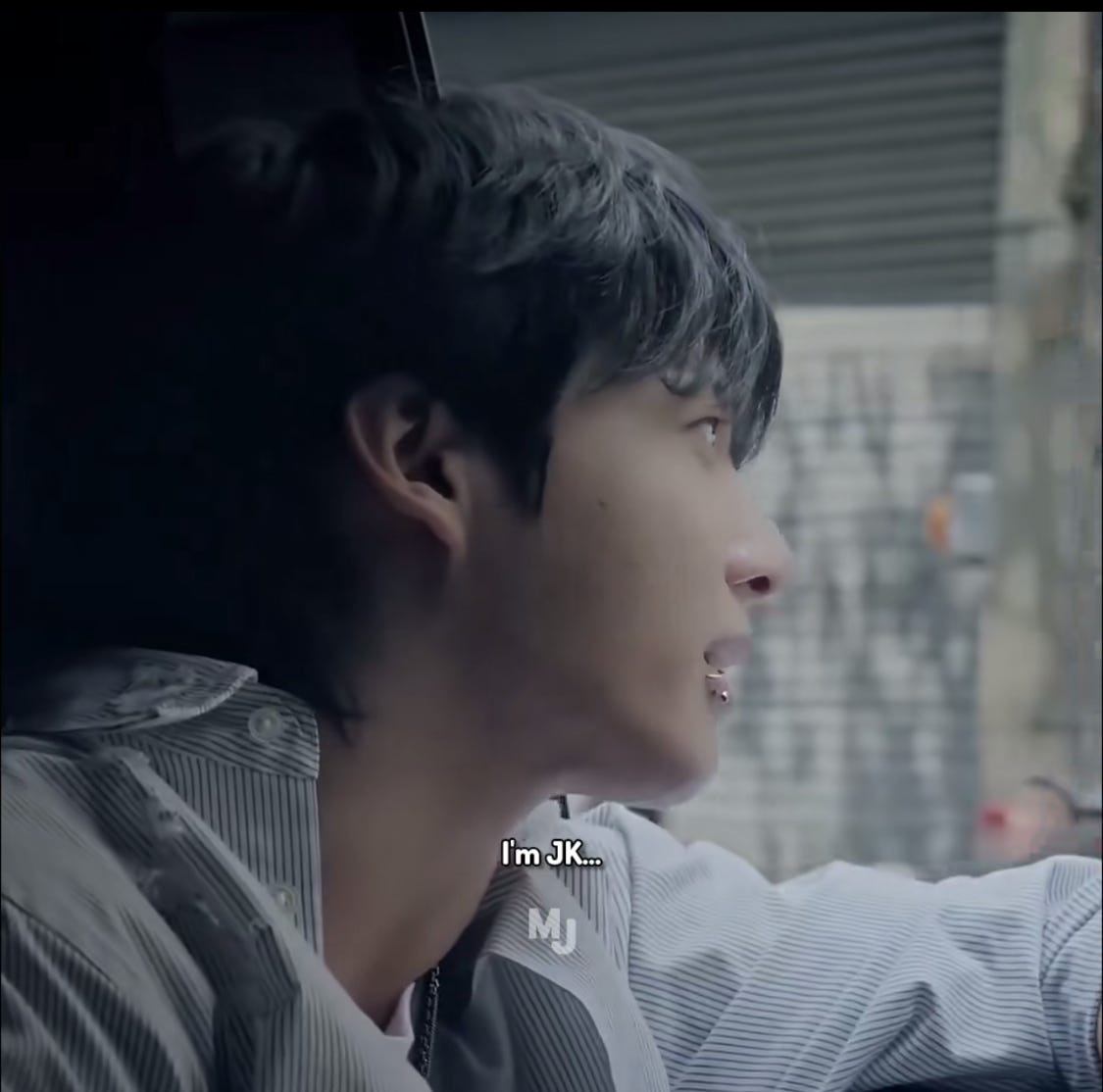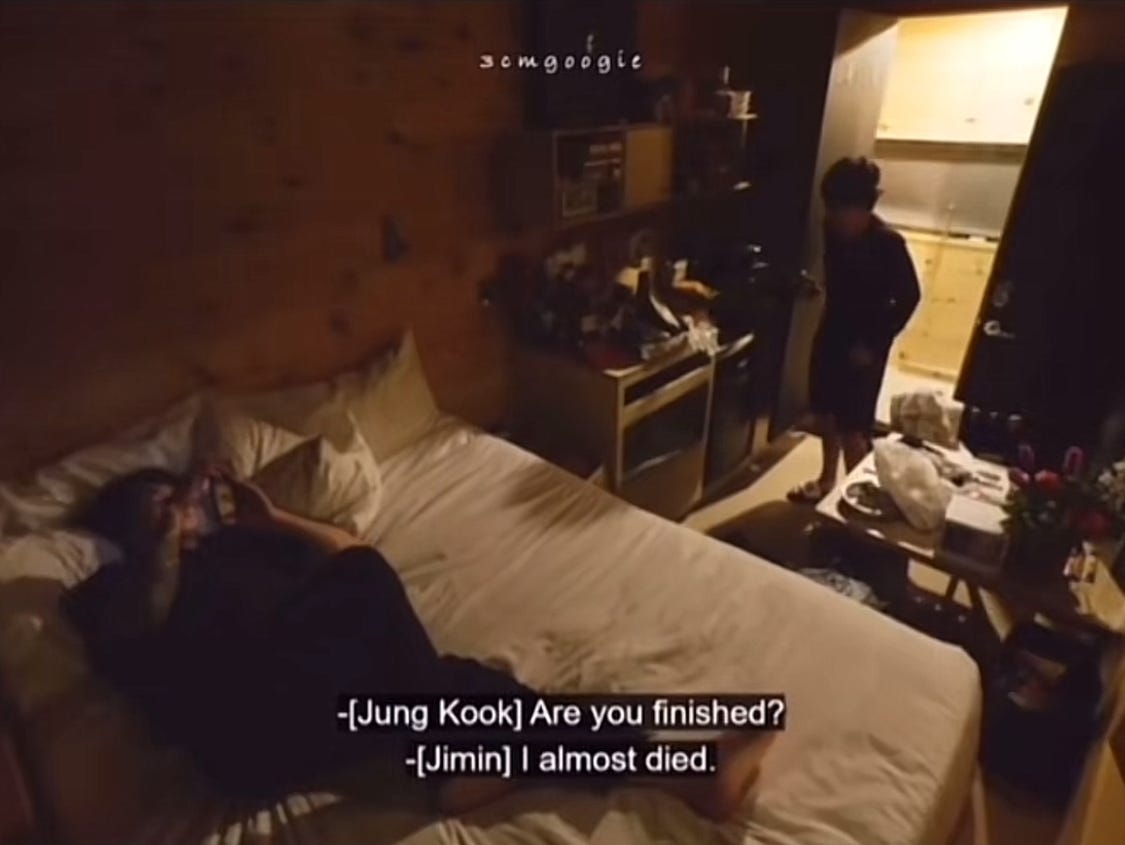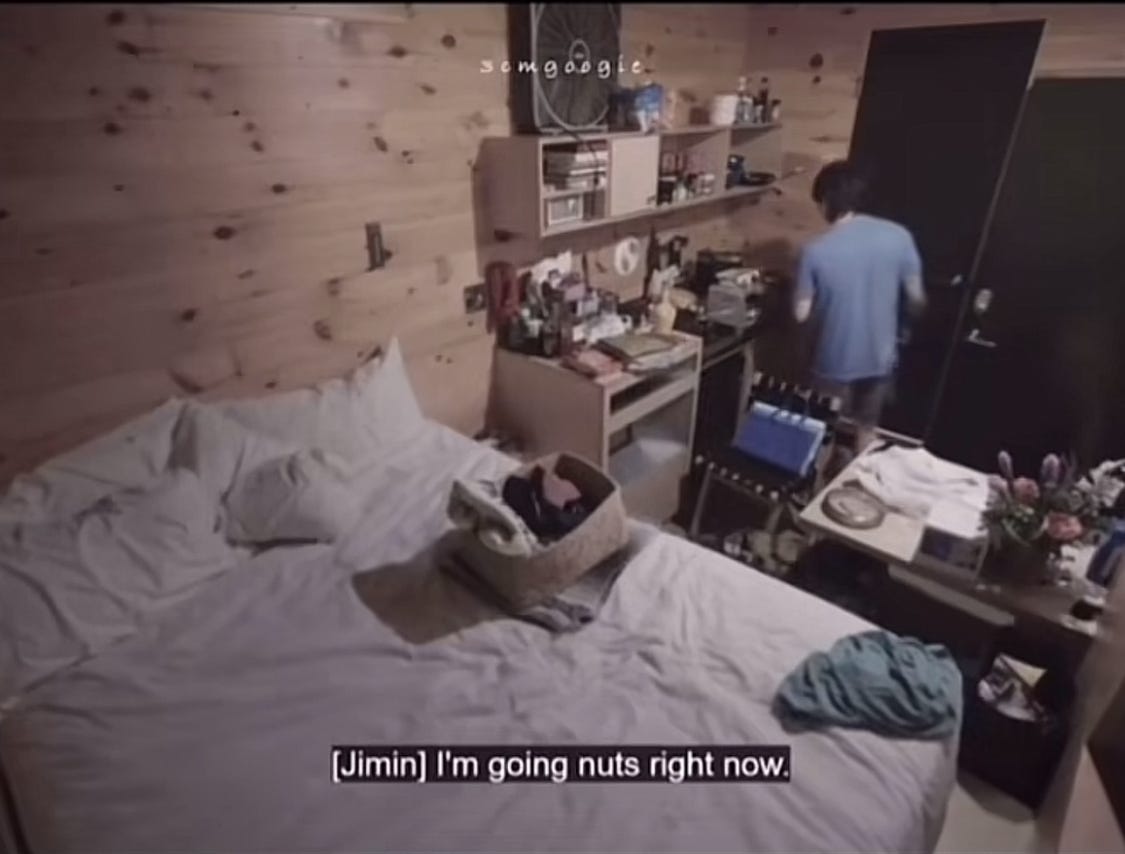Hello! Here’s a new Professional Sweetheart for you. To subscribe and get full archive and commenting privileges, smash this button:
A few weeks back, Danielle and I did an episode of the podcast all about classic music documentaries. My choice that week was Madonna: True or Dare (1991) which I know I obsessively dissected to an annoying degree (sorry). As I discussed, I could not have loved Madonna more when this movie came out. She felt like the older sister I wish I had and a real woman of world: rebellious, sexy, funny, glamorous. At this time in my young life, I felt like none of those things and it plagued me. She was both Italian and Catholic in a way that I wanted to be, a.k.a. a real street-wise, New York City la lupa, like Cher in Moonstruck (1987) or something. Tough but also cute, able to trash talk and still be charming. When Truth or Dare came out, it was about as important for me to watch as anything I could be totally obsessed with when I was twelve years old. I barely knew anything about her real life besides what she said in MTV interviews. Being able to see her outside of that felt exhilarating. There were many moments of the doc that felt surprising to me, especially since there were only but a couple places for “famous people info”: Entertainment Tonight, People Magazine, Barbara Walters interviews, maybe a morning radio call-in show. I didn’t have the sophistication of these thoughts at the time but as an adult I feel like the movie is a near-perfect balance of cinéma vérité (“the real Madonna”) and the “performance” of “Madonna’s personality”. Weirdly enough, I wanted both. I wanted to her to be the flirty, loud, and outrageous person in her underwear and American flag from the Rock the Vote commercial but I also wanted to know if sometimes she just ate soup while talking on the phone with her dad.
Truth or Dare is still a real high-water mark for me when it comes to documentaries about famous people. It’s probably not fair to hold anything else up to it, especially in the modern age of celebrity “content”. The reality (ahem) is, in the pre-internet days you were lucky if your favorite band even had a glimpse into their lives via a feature-length movie released in theaters. It’s a night and day difference to now, where getting and staying famous is so tied to having a rolling digital footprint that you sometimes end up knowing too much about the stuff you like, for better or for worse. The modern system is much more encouraging of celebrities making as much content as they can stand and to have their fans relish in that content as frequently as possible. Is there even a big necessity for a full-length celebrity documentary like Truth or Dare when they’re dropping a few TikToks a week…some longer Instagram Lives…daily photos and IG stories, of course…along with the standard Youtube content such as music videos and interviews. These things seem like a much faster, more revealing, and way more direct portal to fans than a 90-minute, in-cinema doc could ever be, right?
I started thinking about all this while watching I Am Still (2024), a documentary about Jung Kook from BTS that came out a few weeks ago. As I wrote back in March, I found out about him earlier this year thanks to my friend Eddie (who I went to see the doc with) and my subsequent Youtube algorithm, which had been overrun by K-pop content after watching one of his music videos. While I’m still fairly new to the BTS world comparatively speaking, I do know there’s been several documentaries about them at this point, some of which were released theatrically. However, the timing of I Am Still coincides with the band’s current mandatory military service, which essentially means they’re on hiatus until 2025, living in barracks, and doing non-pop star-type things.
As an American, of course I didn’t realize this happened over there. But to me, the most fascinating aspect of this scenario is that the entire band left a giant bunker’s worth of stuff for their fans which includes solo albums, singles, music videos, web series, books, art gallery shows, reality TV programs, and theatrical documentaries like I Am Still, and they’ve been dropping on the regs like little content bombs for about a year so far. There’s so much coming out, virtually every single week, that it’s hard to keep up (and I gotta say, some of the things have been better than others). But as a programmer and a media historian of sorts — there is something really interesting about all of it, about a band being motivated by a concern like this. There’s been a lot of pleas in some of this stuff by the different members to “wait for us”, which is sort of wild to me. I’m sure there’s a fear of being forgotten even though their fans have proven they are impressively loyal (like, if social media is any indication, I genuinely think BTS has nothing to worry about). But also, as modern pop stars, they would be dumb to not consider ways to maintain their digital footprint when they’re gone, which is basically the life and death of anything these days. Like, what is more doomed than someone’s social media going fallow and then you see they haven’t posted in over a year or something? You might as well cease to exist!
Having said this, though — BTS even before their military service (and as my Youtube algo had proven) had to be one of the most chronically online bands I’ve ever seen. The content they have pumped out in the last decade is staggering. Even in my unemployment days with zero things to do, I couldn’t even crack the surface of their viral empire. Two things immediately jumped out realizing this: a) they’re willing to constantly be filmed, no matter what they’re doing and b) their fans are totally interested in watching all of it, no matter how mundane, as indicated by the millions of views their videos get. Especially when it comes to Jung Kook, who is arguably the most famous member of BTS. He’s youngest (and therefore the “cutest”) in the band, the only one who has visible tattoos and multiple face piercings, and his singing style is reminiscent of both Michael Jackson and Justin Bieber, also extremely famous, global child stars in their own right. I mentioned when I wrote about this in March but JK frequently gets on live streams where he sits in front of millions of people and kind of does nothing but drink whiskey, talk shit, and sometimes falls asleep. And millions of people around the world are there every time, just watching this guy do literally whatever.
My friend Luke Goodsell was one of the only film critics I knew who wrote about I Am Still when it came out and I totally agree with him that there is a “guarded” and “polished” feeling to the movie, which is probably a function of the highly controlled narratives of the K-pop world (and modern fame in general, to be real). In all honestly, most of the formal documentaries I’ve seen about BTS are this way and are really kind of same-y in their structures: early day struggles, rise to fame through hard work and persistence, importance of the team to current success. You very rarely see something messy, like a fight or stage disaster, let alone any real peeks into their personal lives. Nobody is making puke faces behind Kevin Costner as he walks away, for damn sure. Granted, I don’t feel nearly as strong for JK as I did for 1990’s Madonna. Maybe watching him eat a Chipotle burrito bowl (which he does at some point in the film) is someone else’s “soup on the phone” moment. But when you consider just how much of this guy’s life is already out there, how it’s ready for anyone to watch literally whenever and as frequently as they want, I wondered if there was anything really left to say in the structure of a full length documentary. Like, what are you really getting after you’ve already spent so much time watching him online talking at ease, without makeup and in his normal clothes? When we left the theater, Eddie and I went back and forth over the inevitable question of whether it was worth seeing in theater. Because ultimately, what IS the function of something like I Am Still when its star is already so accessible to his fans? Could it ever be a Truth or Dare-like event, in the age of big content?
Ironically enough, and Luke mentions this in his review — there are “liminal spaces” in the doc — the cars, the hotel room, the backstage, etc. These smaller, quieter passages of time felt like where you actually learned about him the best. Take away the performances and the slightly canned backstory elements; an incidental, thirty-second moment of Jung Kook alone in the backseat of a giant black Escalade, looking out the window at people on the street and pretending to introduce himself to them suddenly communicated more about the isolation and true nature of international stardom than any of the prepared interview sections ever could.
One of the other more recent JK-related things that was left in the BTS content bunker was an eight-part reality series called Are You Sure?! which is currently on Disney Plus. It’s effectively Jung Kook and his bestie in the band, Jimin, going on vacation together in three seperate locales: upstate New York, an island in Korea, and a village in Japan. Each episode is at least an hour long, and quite frankly, maybe some didn’t need to be? There’s not always a ton of things happening in many of them beyond the two of them eating, then filming each other eating with their separate GoPros. I thought the most fascinating episodes out of the whole series were the first two. They were the ones that took place in America, and in particular, Jimin developed a terrible stomach bug on their first evening that kept him in bathroom all night long. Very little was edited out save for maybe actual toilet noises, and I actually thought it was amazing?! Just knowing just how much fantasy imagineering goes into these pop stars, that is. The idea that they would show one of these extremely famous BTS guys shitting himself to near death in an AirBnb — dare I say it was one of the finest pieces of direct cinema I’ve seen all year.
All of this is to say, I’ve always loved music and movies about musicians. I’m old enough to have not had the open, easy access to things the way people do now. The essential question of how a documentary should function in terms of its relationship to reality will always be fascinating to me, one I’ve been asking myself all of my adult movie-going life. When I taught undergrad Film Appreciation a few semesters back, I realized quickly how younger people interact with the documentary form, and how it generally became way more complicated once social media and “content” came into the picture, especially as it pertained to celebrities. If famous people are more accessible than ever, theoretically; if they participate in the parasocial dance with us online, if they speak directly into the camera to us via stories and livestreams, if we’re able to see peeks into their lives in increasingly more intimate ways on a regular basis — what do their documentaries become? Are they just formalist fluff pieces, vestiges of an analog past, or can they still dare to provide us with moments of occasional truth?
Thanks for reading. Have a good week,
Millie







